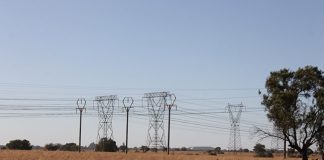The recent spat between South Africa and Brazil over poultry imports raises the issue of how self-interest can bedevil unity in newly formed geo-political forums, such as BRICS (Brazil, Russia, India, China and South Africa) and IBSA (India, Brazil and South Africa). South Africa accused Brazil of dumping chickens onto the market, causing harm to our poultry industry. Brazil initiated a World Trade Organization action after South Africa imposed import tariffs on Brazilian chicken.
Brazil contends that South Africa’s actions are costing its economy $70 million a year. The chickens may well come home to roost when national trade protection takes precedence over internationalism. For the moment though, it is more likely that the dispute will ruffle a few feathers but not change the direction that BRICS and IBSA are following. Evidently these new geo-political associations formed to leverage power in the existing world order, do not exclude rivalry between cohorts.
In reality, the establishment of BRICS and IBSA is to define a collective new role for themselves within the existing order. All is cordial and cautious for now. The bigger powers in the groups are not ready to give up anything for the pretence of unity.
What binds the BRICS and IBSA countries is that they have common development challenges and find themselves in a world where conventional North-Atlantic power is under strain, if not waning.
They want to industrialise and develop their individual economies on the back of each other’s markets and capabilities. South Africa would like to reduce its dependence on European markets and is keen for economic trade, at least with China and India, to slowly displace Europe’s capture of trade relations within Southern Africa.
Members of both groups are also active in Africa’s economy, seen largely as the preserve of former colonial powers. Recently South African multinational corporations have advanced into the continent. The behaviour of the rest of the BRICS countries, including their political and economic role, has significant implications for South Africa’s position in the region and our economic development with that of the region. It’s one of the reasons South Africa can’t avoid being part of these groupings.
Gains and losses
There is a sense that playing the international geo-political game is a mix of serious engagement on crucial global issues, and a boxing match of sorts as BRICS leaders seek to punch above their weight while things at home don’t look that good.
China may be in a better position, but its own domestic policies and human rights culture (or lack thereof) doesn’t always win applause.
Both BRICS and IBSA forums started off as talk-shops aimed at fostering better relations between aspiring global players. This will become more material with the creation of a permanent secretariat and plans to go ahead with the establishment of a BRICS bank, given the impetus for a less dollarised world economy. China is experimenting with the Renminbi becoming an international trading currency.
BRICS countries will certainly play a bigger global role as their share of GDP and income grows. Together they constitute 40% of the world’s population and have 18% of global GDP share – predicted to grow to 40% by 2030. South Africa, though, is losing ground: In 2011, South Africa’s total exports to Africa’s largest economies significantly lagged behind those of China. Of South Africa’s total exports to Africa, 0,5% was to Egypt and 4% to Nigeria compared with China’s 13% and 16% respectively.
While South Africa’s trade into Africa has increased, it is neither deep nor fast enough. There is also some debate about whether goods exported from South Africa are manufactured in our country. South Africa’s good infrastructure and banking system is increasingly becoming an ideal re-export logistics hub to re-route goods to other parts of Africa.
Leadership
Nevertheless, while each member of BRICS and IBSA has asserted its leadership, the acceptance of their leadership by neighbouring or regional states is not undisputed. Regional member states have an uneasiness and restlessness with BRICS members’ self-appointed regional leadership role. Brazil, for example, struggles with neighbours who view it with suspicion while South Africa’s economic and political dominance in Africa has received mixed reactions.
This can be seen in the inconclusive fight to have South Africa’s Nkosana Dlamini Zuma elected as African Union (AU) president. Countries such as Turkey, Mexico, Indonesia and others transitioning to middle-income status are excluded from BRICS and IBSA. But these countries look certain to assert themselves at a regional level. Mexico is starting to challenge Brazil as a manufacturing and industrial base in Central America, piggybacking on the North-Atlantic Free Trade Agreement.
Transition to middle-income status does not suggest that BRICS countries have settled their own internal tensions and dilemmas. Each country’s populace would prefer a focus on domestic challenges rather than this international hobnobbing among each other and in the G20. South Africa balances on a knife edge – our buckling economy and regressing human development index compared to other BRICS countries will increasingly make our claim as the regional power player sound like the growl of a paper tiger.
While it is seen as bold and vigorous outside, South Africa suffers an increasing hollowness from within. If our economy doesn’t grow, it will be challenged by regional rivals who may be doing better on development indicators. Moreover, our political leaders will be hard-pressed to explain why the rest of BRICS is advancing while we make slow progress. In the long-term, economic sustainability and growth in South Africa – shared with the region – will be beneficial to all.
If it fails to grow the economic cake, South Africa’s assertion of leadership on the global stage will encounter continued reluctant acceptance from neighbours and the African region as a whole. It will have little to offer other than posturing. Assertions of leadership without the weight of financial capacity and economic muscle will also make this country vulnerable to counter-strategies from African rivals and the members of BRICS who will mouth rhetoric, but practice as they see fit.
Source: The South African Civil Society Information Service (www.sacsis.org.za). The views expressed in our weekly opinion piece do not necessarily reflect those of Farmer’s Weekly.













